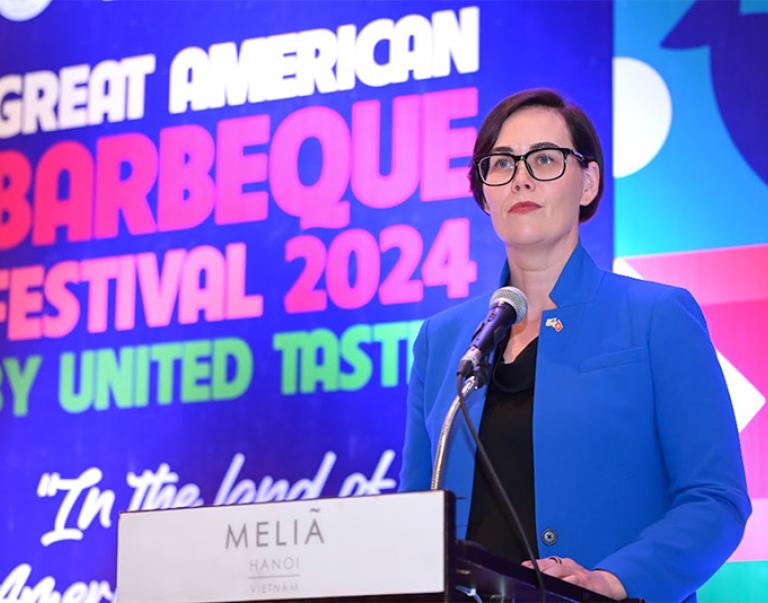WASHINGTON, Nov. 18, 2015 – USDA Rural Utilities Service Administrator Brandon McBride today announced that nearly six million Americans who live and work in rural areas now have access to new or improved high-speed internet service, thanks to USDA funding provided in the American Recovery and Reinvestment Act.
"I am proud to announce today that all of the active projects USDA has financed through the Recovery Act are now providing broadband service in rural areas nationwide," McBride said. "In 2009, the Obama Administration pushed for, and Congress provided USDA with, an unprecedented level of funding and five years to connect rural areas to high-speed networks. Bringing broadband to these areas is having a tremendous impact on rural communities. This access means more jobs, better education and a higher quality of life. The economic viability of rural America, like all of America, depends on access to broadband."
Two hundred fifty-four Recovery Act broadband projects financed by USDA's Rural Utilities Service totaling $2.9 billion are providing broadband service in 44 states and American Samoa. More than half the infrastructure projects were completed under budget, resulting in the return of nearly $113 million to the U.S. Treasury. The measure's five-year period for funding broadband projects expired at the end of the 2015 fiscal year.
These projects have brought high-speed Internet access to 260,000 rural households, 17,500 businesses and 1,900 community facilities. The service providers estimate that completed projects could provide access for more than 5.8 million rural consumers.
In Burnsville, N.C., Country Cablevision now provides 2,000 homes with broadband speeds of up to 100 megabytes per second. Businesses can receive up to 1 gigabit per second. The new service allows troops overseas to have live video connections with their friends and families, and it makes it easier for virtual visits at the local nursing home.
In Scott County, Tenn., 21,000 households now benefit from broadband because of USDA Recovery Act financing provided to the Highland Telephone Cooperative. Residents have compared the service improvements to "going from a gravel road to the interstate." Students now earn college degrees online, and businesses operate faster and more efficiently.
Building broadband infrastructure in rural and remote areas can be challenging. In communities in Bristol Bay and the Yukon-Kuskokwim Delta in Alaska, for example, cable was pulled by hand under a frozen river to make broadband available to Native Alaskan villages for the first time. As a result, area residents now have expanded access to health care services.
While Congress instructed USDA to improve rural broadband access as part of a sweeping set of infrastructure investments funded through the Recovery Act, USDA is financing additional expansions to rural broadband service through other annual funding.
"We've accomplished a great deal as a result of the Recovery Act funding," McBride noted. "But we still have more to do. Too many rural Americans are still living on the wrong side of the digital divide. USDA is committed to bridging that divide by getting more rural Americans online at work, at school and at home." According to the Federal Communications Commission, only 47 percent of people who live and work in rural areas have access to high-speed internet, compared to 90 percent of those who live and work in urban and metropolitan areas.
President Obama's plan for rural America has brought about historic investment and resulted in stronger rural communities. Under the President's leadership, these investments in housing, community facilities, businesses and infrastructure have empowered rural America to continue leading the way – strengthening America's economy, small towns and rural communities.
#
USDA is an equal opportunity provider and employer. To file a complaint of discrimination, write: USDA, Office of the Assistant Secretary for Civil Rights, Office of Adjudication, 1400 Independence Ave., SW, Washington, DC 20250-9410 or call (866) 632-9992 (Toll-free Customer Service), (800) 877-8339 (Local or Federal relay), (866) 377-8642 (Relay voice users)



